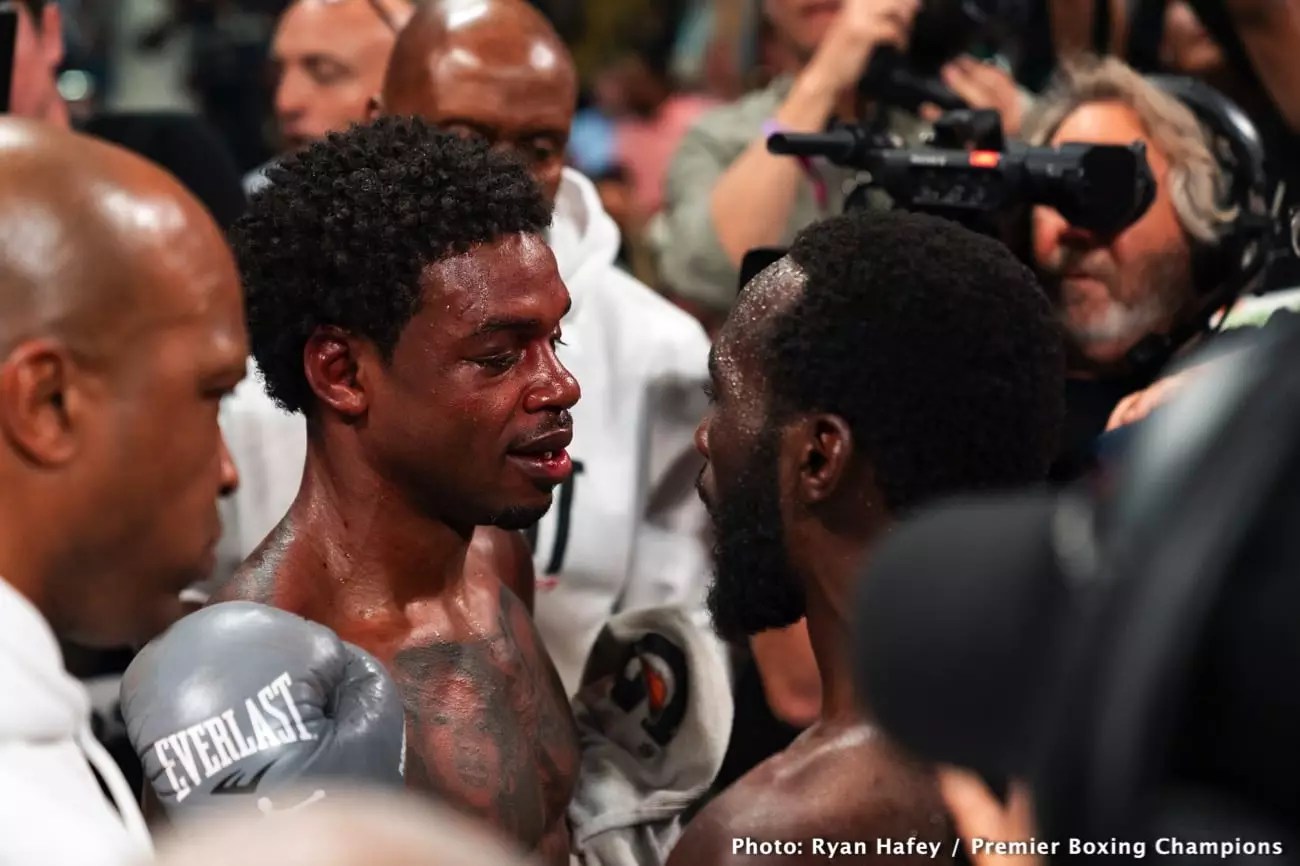Keith Thurman stands on the precipice of a high-stakes return to professional boxing, his ambition radiating with a fervor that can only come from a seasoned veteran who has experienced the thrills of the ring. After a long layoff spanning nearly three years, he faces Brock Jarvis in an anticipated comeback fight. Despite the undeniable challenge in front of him, Thurman is already setting his sights on a much larger prize: a clash with Errol Spence Jr. While confidence is vital in boxing, is it prudent for Thurman to be so audacious, especially given the uncertainties following a lengthy hiatus?
The fight against Jarvis is pivotal—not only for Thurman’s career trajectory but also for validating his statements regarding Spence. Thurman (30-1, 22 KOs) possesses a storied career, yet the canvas of his recent history is painted with inactivity and age. Will the 36-year-old who steps into the ring be able to recapture what once made him a formidable force in the welterweight division? The looming specter of underperformance against the relatively younger Jarvis (22-1, 20 KOs) casts a shadow of doubt. Thurman’s bravado risks appearing more like a desperate grasp for relevance than a calculated career move.
Spence: The Undisputed Challenge
For Spence, the situation is equally precarious, having experienced a devastating ninth-round knockout loss to Terence Crawford. The defeat has led many to question whether the 34-year-old champion retains the same vigor that once defined him in the ring. His plans to face rising star Sebastian Fundora fell through, leaving fans in suspense and him at a crossroads. Unlike Thurman, Spence does not have the luxury of a warm-up before confronting his next significant combatant.
Thurman’s eagerness to face Spence, despite an iffy comeback against Jarvis, lends an intriguing dynamic to the current landscape of boxing. There’s a depth to their narrative: both men harbor ambitions of reclaiming glory but are confronted with contrasting challenges, namely physical aptitude and timing. Spence’s claimed interest in cashing in on more lucrative fights indicates the growing commercialization of boxing, often overshadowing the athletes’ competitive spirit. In an era where profit frequently takes precedence over legacy, does Spence even want to engage with Thurman, given his own tumultuous past and future ambitions?
The Weight of the Past
Thurman’s references to past negotiations with Spence, where he alleges Spence chose Crawford over him, paint a vivid picture of the politics at play in boxing. Thurman is keenly aware of these dynamics, recognizing that a fight with Spence encapsulates more than just numbers on a contract—it symbolizes an encounter long overdue in boxing fans’ eyes. Yet, the uncertainty of their past choices raises suspicions: what if Spence was justified in taking a different path from Thurman? After all, there’s truth to the notion that careers can shift dramatically due to choices made in moments of desperation or opportunity.
Thurman’s nostalgic longing for the matchup—“the truth is, you fought everybody but you ain’t fight me”—is not just a jab at Spence; it’s a testament to his unresolved ambition and a reminder of the complex intricacies of boxing narratives. While the boxing world eagerly awaits spats, bouts, and their aftershocks, will the desire for a legendary match be sufficient for both Thurman and Spence?
The Fleeting Nature of Time
Time is arguably the most formidable opponent any athlete must confront. As fighters age, the roles of youth, agility, and stamina become paramount. Thurman’s self-assured proclamations, mixed with a cautious undertone regarding the potential for victory over Jarvis, reveal a bit of the psychological tug-of-war present in all great boxing narratives. A loss against Jarvis would dramatically shift the conversation about his credibility in challenging Spence, and yet he presses on, his determination seemingly unyielded by logic.
If Thurman emerges victorious, it would serve as a much-needed affirmation of his skills, perhaps reigniting the flames of his once-great career. However, should he falter, it would bring into serious question the viability of challenging an elite veteran like Spence, who is battling his own demons post-Crawford. It’s a perilous game of risk and reward, a dance between fading glory and revived ambition that could just as easily bring about triumph or tragedy for both fighters involved.
In this calculating sport, Thurman’s firebrand call-out to Spence illustrates the delicate balance between confidence and response to reality. The question lingers: will ambition and nostalgia cloud Thurman’s judgment, or will he prove that experience can still conquer the youth who threaten to eclipse it in the adrenaline-filled arena?


Leave a Reply